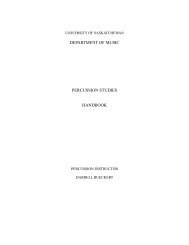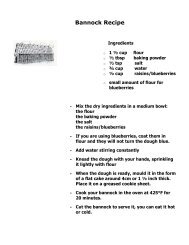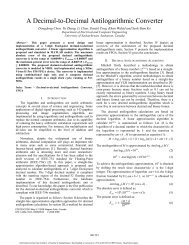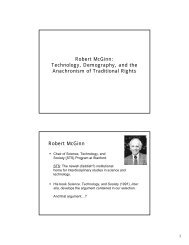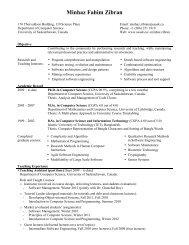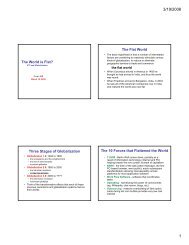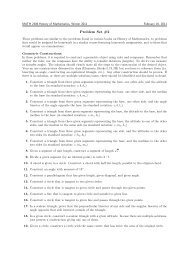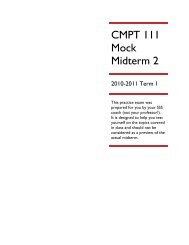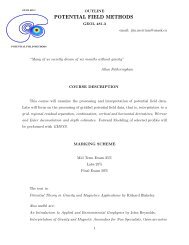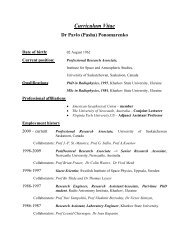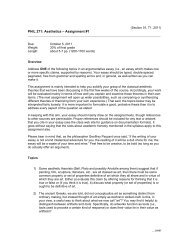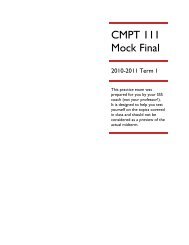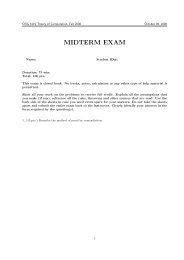Water Resources Engineering - Homepage Usask
Water Resources Engineering - Homepage Usask
Water Resources Engineering - Homepage Usask
Create successful ePaper yourself
Turn your PDF publications into a flip-book with our unique Google optimized e-Paper software.
C10. WATER QUALITY AND TREATMENT<br />
(KUL-code: I787 (Th); I788 (Pr))<br />
Lecturer: VAN DER BEKEN A.<br />
ECTS-credit: 5 pts<br />
Contact hours: 30 hrs. of theory/30 hrs. of practical<br />
Prerequisites: General courses on physics and chemistry<br />
Time and place: 2nd semester, 13 sessions of 3 hours each, K.U.Leuven<br />
Course syllabus: Lecture notes<br />
Evaluation: Practical exercises and reports (1/3) and written examination with optional oral<br />
examination (2/3)<br />
Comparable handbook: Text Module on 'Municipal water and waste water treatment’. Unesco, Paris, France<br />
Learning objectives:<br />
<strong>Water</strong> quality must be understood by the students as an "indefinite" characteristic of water (vs. quantity which<br />
is definite). The many sources of natural and man-made pollution and the unlimited quality variables must be<br />
recognized in an integrated approach, allowing for further detailed analysis if and when needed, e.g. with<br />
respect to treatment processes and regulation measures on short term and long term. The distinction between<br />
water quality standards, licences, emission and immission criteria is essential. The basics of water and waste<br />
water treatment processes and their limitations must be understood in order to be able to communicate and<br />
cooperate with specialists in these matters.<br />
Course description:<br />
The course aims to provide an introduction to water quality assessment and water and waste-water treatment.<br />
1. Definition(s) of water quality; Integrated water quality management<br />
2. Types and sources of pollution;<br />
3. Physical-chemical water quality:<br />
4. Characteristics of waste water;<br />
5. Biological and microbiological water quality;<br />
6. <strong>Water</strong> quality monitoring;<br />
7. Self-purification in rivers, and waste water discharge regulation;<br />
8. Review of major physical, chemical and (bio)technological processes of water and waste water treatment.<br />
The practical work consists of:<br />
- Calculation and interpretation of various water quality indices;<br />
- Calculation of self-purification and waste water discharge regulation;<br />
- Elementary design of a waste water treatment plant; and<br />
- Visit to drinking water production or waste-water treatment plants.<br />
Complementary studies in <strong>Water</strong> <strong>Resources</strong> <strong>Engineering</strong> / 16



